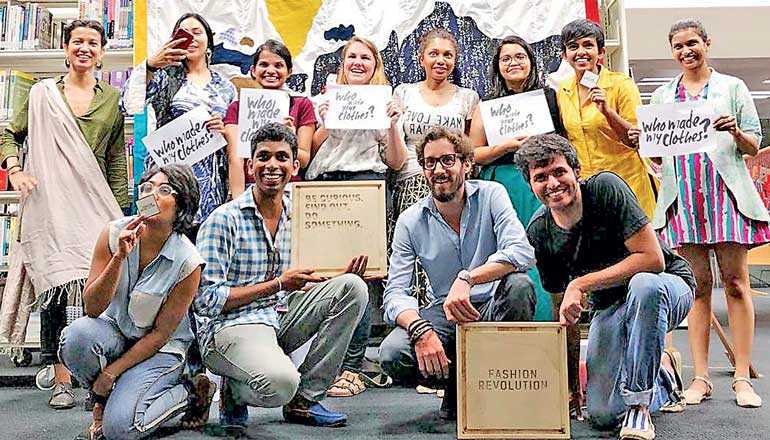Friday Feb 27, 2026
Friday Feb 27, 2026
Thursday, 28 June 2018 00:00 - - {{hitsCtrl.values.hits}}

Year 2018 marks five years since the fourth largest industrial disaster in history, which claimed the lives of 1,138 garment workers and injured another 2,500. On 24 April 2013, the Rana Plaza garment factory collapsed due to structural failure of the building where clothes were manufactured for well-known global brands.
That’s when the Fashion Revolution movement was born.
Our clothes have gone on a long journey before they hit store shelves, passing through the hands of cotton farmers, weavers, dyers, seamstresses and others. Approximately 75 million people work to make our clothes; 80% of them are women between the ages of 18 and 35.
However, the majority of the people who makes clothes for the global market live in poverty, unable to afford life’s basic necessities. Many are subject to exploitation; verbal and physical abuse, working in unsafe and dirty conditions, with very little pay.
The Fashion Revolution movement wants to create transparency in the global fashion supply chain and help consumers ask, “Who made my clothes?” It is a movement mobilising a global consumer base to hold accountable the global brands which outsource their manufacturing throughout the world to exploit cheap labour and low cost working conditions.
Joining this global movement is a group of Sri Lanka’s very own ethical fashion brands. These brands came together as a collective with a common mission to organise a series of events to help educate Sri Lankan consumers and private and public sector leaders about the need for a revolution.
“We share a common passion for treating people, communities and the environment fairly and compassionately. We believe together as a collective of ethical and sustainable brands we have the power to amplify the message to a wider audience,” said one of the organisers. As the first of a series of events, these brands screened the documentary ‘The True Cost’ on 14 June at the British Council Library. ‘The True Cost’ is a ground-breaking new documentary film that pulls back the curtain on an unseen part of our world and asks us each to consider who pays the price for our clothing.
Filmed in countries all over the world, from the brightest runways to the darkest slums, and featuring interviews with the world’s leading influencers including Stella McCartney, Livia Firth and Vandana Shiva, The True Cost is an unprecedented project that invites us on an eye opening journey around the world and into the lives of the many people and places behind our clothes.
“Sri Lanka is already well known for our ethical standards and innovations in the apparel industry. However, there’s more we can do to become the true global leader in ethical and sustainable fashion. Therefore, we screened ‘The True Cost’ to create a conversation where all of us engaged with the fashion industry at different levels can come together and make a telling contribution to protect our communities and environment,” added one of the event organisers. The film screening had an attendance of a little over 100 viewers, well beyond the initial plans of the organising brands. Among the viewers were academics, civil society activists, students, influencers, public and private sector leaders and foreign diplomats.
“The movie opened my eyes to the story behind the clothes I wear and has inspired me to take action as a consumer to be more conscious about my consumption considerations,” said one viewer while another added, “I’m horrified to learn how we have sold our souls in the name of making more money, how a persons’ value is measured by the amount they earn and how industry is exploiting people, communities and the environment.”
Sharing thoughts after the movie, one design student said: “I really want to thank the ethical brands who organised today’s film screening. As a design student, I feel inspired to become part of the solution that will change the way the global fashion industry operates.” Buoyed by the positive reception and continued requests for registrations, this collective of our very own homegrown ethical and sustainable brands will continue to actively engage the public through a series of events throughout the year.